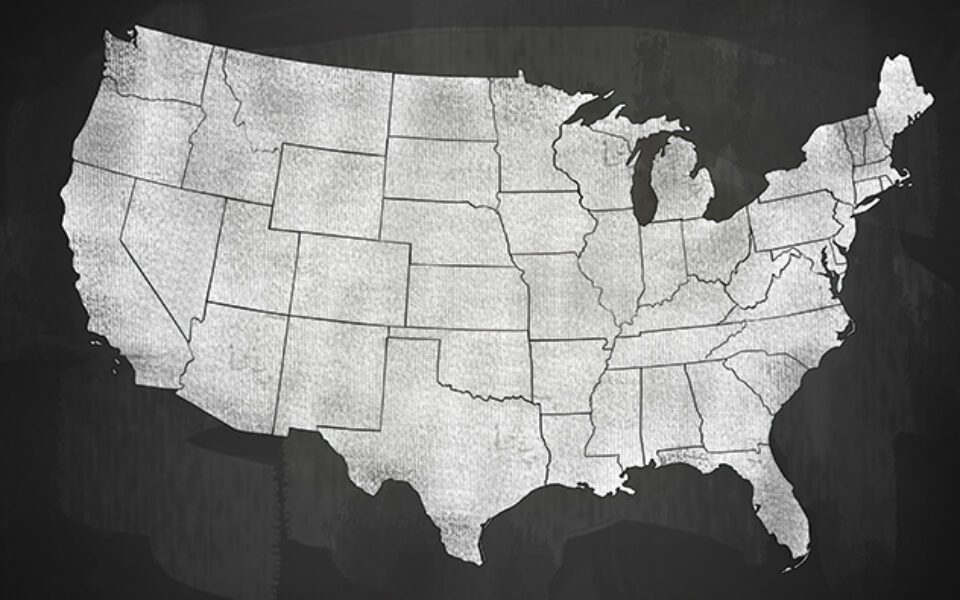State and Local Tax Updates
A Summary of Recent Significant Court Cases and an Annual Update of State Law Changes.
SALES TAX ECONOMIC NEXUS
On June 21, 2018, the United States Supreme Court in a 5-4 decision, ruled in favor of South Dakota and its economic nexus provisions for sales tax collection. In doing so, the Court overturned its prior decision in Quill (Quill Corp. v. North Dakota). Quill required that a retailer have a physical presence in a state in order to be required to collect sales tax for sales into that state. The statute upheld by the Court in South Dakota v. Wayfair, Inc. requires remote retailers with annual in-state sales exceeding $100,000, or 200 separate transactions, to collect and remit sales tax.
Since the decision, other states have started to implement sales tax economic nexus rules. Some of these rules went into effect as early as July 2018, with many more starting in October 2018 and January 2019. It is to be expected that most states will have some sales tax economic nexus rule. The majority of these rules will follow the South Dakota rules, but as is normal with state taxes, there will be many different augmentations.
Taxpayers have taken steps to keep up with the ever-changing rules in each state, making sure to register at the start date of the economic nexus laws as enforcement begins. It is not uncommon for clients that had previously had to file sales tax in only a few states are now filing in more than 20 states. Taxpayers have also been forced to understand the taxability of their products in these additional states, and depending on the industry involved and the tax jurisdiction, this can mean different answers.
Taxpayers that have not evaluated the implications of the new economic nexus rules are potentially liable for noncompliance. While sales tax is a tax on the consumer, the failure to collect the tax by a retailer that has nexus in the state is a liability to that retailer.
The failure to properly collect sales tax isn’t just a business risk; it’s a common issue that surfaces in financial statement audits and due diligence analysis. The new sales tax laws are likely to bring an already common exposure item even more to the forefront.
FULFILLMENT BY AMAZON (FBA)
While the Wayfair decision helped to bring attention to sales tax, selling though Amazon remains a potential exposure item for both sales tax and income tax, which has been receiving more and more attention from state tax departments.
Fulfillment by Amazon (FBA) is a common sales channel for retailers online. Under this arrangement, companies send their inventories to Amazon, and then Amazon distributes the inventory across all of its warehouses. Sellers can access the location of their inventory via their Amazon portals. Since the retailer still owns the inventory, this creates nexus for the company in all of the states where Amazon holds it.
Generally, inventory is spread across substantially all of the warehouses in order to fulfill Amazon Prime shipping requirements. The nexus created by this arrangement applies to, but is not limited to sales tax, income tax, franchise tax, and gross receipts taxes.
Taxpayers who utilize Amazon FBA are commonly confused by the way state taxes accrue in their accounts. Amazon, by default, will collect and remit sales and use tax in a certain states including Pennsylvania, Oklahoma, and Washington, due to the special marketplace facilitator rules in those states. However, in the majority of states, Amazon will not automatically collect, and does not remit, sales tax.
The taxpayer’s inventory, which is likely dispersed to warehouses in more than 20 states, creates filing requirements which, in many cases, the taxpayer is not aware of. The non-collection of sales tax and the non-filing of income tax returns is something that the departments of revenue have started to audit. States such as California and Massachusetts have started to audit and assess tax against Amazon FBA sellers who have not been properly remitting taxes.
At the end of 2017, the Multistate Tax Commission offered a favorable voluntary disclosure agreement program in a select number of states; however, a follow up program is not certain to occur. Taxpayers with historical exposure can still file a voluntary disclosure agreement under the normal terms offered by states, in order to become compliant with their taxes and in most cases avoid penalties. In future periods, the taxpayers can take advantage of restructuring to mitigate the tax exposure created by selling through Amazon FBA. Taxpayers who choose to do nothing are risking an audit on an issue that isn’t going to go away. The states have been receiving information related to Amazon FBA sellers, and since there is no statute of limitation for non-filers, audits can happen at any time in the future.
STATE-SPECIFIC UPDATES
Connecticut – On May 31, 2018, Senate Bill 11 was signed, creating a new pass-through entity tax in Connecticut. Instead of withholding income from the pass-through entity, a tax is now paid at the entity level, and a credit for the tax is allowed for the personal or corporate owner’s tax level. This new tax structure was created as a way to circumvent the $10,000 federal limit for individual state and local tax deductions.
California – In March 2018, the California Superior Court in San Francisco ruled in favor of the taxpayer in Paula Trust v. California Franchise Tax Board (FTB). The FTB has long taken the position that trusts are subject to tax on:
- All California-source income, plus
- Non-California-source income apportioned pro-rata, according to the number of California fiduciaries and non-contingent beneficiaries.
The Superior Court found for the first part of this approach, contrary to the law, relegating all trust income subject to apportionment. As a result of the decision, a trust with at least some nonresident fiduciaries or nonresident non-contingent beneficiaries may be able to defer California tax on California-source income earned by the trust until the income is distributed to beneficiaries.
Florida – On March 23, 2018, House Bill 7087 reduced the state tax rate on commercial rentals to 5.7%, effective January 1, 2019. Florida had previously decreased the rate from 6% to 5.8%, as of January 1, 2018. Other changes in the bill included updating Internal Revenue Code (IRC) conformity, sales tax exemption for nursing homes, two sales tax holidays, and property tax relief related to tropical storm damage.
Illinois – Effective January 1, 2018, the Illinois Revised Uniform Unclaimed Property Act made several significant changes to the existing law. Notable revisions include the following:
- The dormancy period (period of presumed abandonment) was reduced from 5 to 3 years, for most types of property;
- The business-to-business exemption for certain transactions between two business entities (accounts receivable, outstanding checks, etc.) was repealed; and
- The statute of limitation was extended from 5 years to 10 years.
Indiana – On March 23, 2018, SB 257 was signed, which temporarily exempts Software as a Service, or SaaS, from Indiana sales and use tax, effective July 1, 2018. Without future action, this provision will expire July 1, 2024. Previously, the state interpretations of the statutes and regulations by the department had concluded that SaaS was subject to the tax because of the taxability of prewritten computer software.
New Jersey – On July 1, 2018, Assembly Bill 4202/Senate Bill 2746 made significant changes to the corporation business tax. This law changes the net operating loss rules, increases the tax rate to 11.5%, and adopts market-based sourcing and mandatory combined reporting, along with other TCJA- related changes.




















